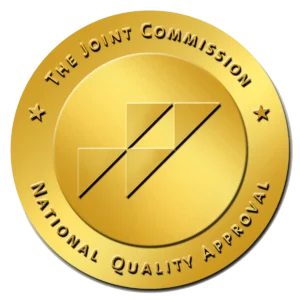Often, after a person has died by suicide, the people who knew them will state that there were no warning signs and they had no idea that the person was struggling. While it is possible that a person might not give indications that they’re thinking of ending their life, often the signs are there but go unrecognized by loved ones. At The Pavilion in Williamsburg, Virginia, we want to give friends and family members the information they need to recognize when a loved one could be contemplating suicide and to prevent their death.
Risk Factors
Anyone can experience suicidal thoughts. Fortunately, these are often fleeting, and most people do not attempt to act on suicidal ideation. Some people, however, aren’t able to shake these thoughts and may become inclined to take their own life. This is more likely if:
- The person shows signs of a mental health condition – Although women are more commonly diagnosed with depression and attempt suicide more often, men are more likely to complete suicide, even without a mental health diagnosis. This may be because males are conditioned not to ask for help and to see the inability to manage their struggles alone as a sign of weakness. If the person has symptoms of a mental health disorder, even without an official diagnosis, they should be considered at higher risk for suicidal thoughts. Some mental health conditions that are linked to an increased risk of suicide attempts include:
- Depression
- Bipolar disorder
- Post-traumatic stress disorder (PTSD)
- Schizophrenia
- Borderline personality disorder
- Substance use disorder
- Anxiety
- They are navigating something difficult
-
- The loss of a spouse due to death or divorce
- Unemployment
- Financial struggles
- Chronic or severe physical pain
- Loss of a friend, family member, or colleague to suicide
- Recent psychiatric hospitalization
- They have a painful history of abuse, bullying, or prior suicide attempts
- They work in a field that increases their suicide risk
Warning Signs
Despite statements by survivors that their loved one didn’t show signs of contemplating suicide, there are often many red flags before a person attempts to kill themselves:
- Written or verbal statements referring to themselves as a burden on their loved ones; stating that people would be better off without them or that no one would miss them if they were dead; wishing for death or expressing preoccupation with dying; saying they feel ashamed, in unbearable pain, trapped, or hopeless
- Distancing themselves from friends, family, and co-workers
- Collecting items they would use to kill themselves – pills, firearms and ammunition, a rope or belt, sharp objects, etc.
- Making final arrangements like buying a life insurance policy, writing a will, giving away cherished possessions
- Saying goodbye to friends and family as if they don’t expect to see them again
- Seeming to suddenly feel calm and relieved after a long period of sadness; while this may seem like a good sign, it can indicate a relief that they have found a way to end their life and plan to follow through with an attempt
- Changes to mood, behavior, hygiene/appearance, eating and sleeping patterns, or substance use
How to Help
If someone you know seems to be showing indications that they are considering suicide, ask them if they are thinking of taking their life. If they say yes, you can support them by:
- Taking any threats to kill themselves seriously, even if the person claims to be joking. Never assume that anyone who says they are contemplating suicide is just making a joke or trying to get attention.
- Expressing your love and concern for them and your desire for them to live.
- Ensuring they are not left alone while they are feeling suicidal.
- Reducing their access to items they would use to kill themselves. This might mean removing the items, locking items up, or contacting their pharmacy to inquire about ways for them to receive their medications in smaller increments.
- Helping them contact their mental health providers or primary care doctor to schedule an appointment. If they don’t have a doctor they can reach out to or are not willing to do so, help them to call or text 988 to get support from a trained crisis counselor at the Suicide and Crisis Lifeline.
- Taking them to the nearest emergency room or calling 911 if you don’t believe you can help them stay safe.
At The Pavilion, we help adults, seniors, and families to navigate mental health and substance use crises. We witness recovery from seemingly impossible circumstances every day and we want to support our patients in successfully moving through painful situations to have meaningful, enjoyable lives.






